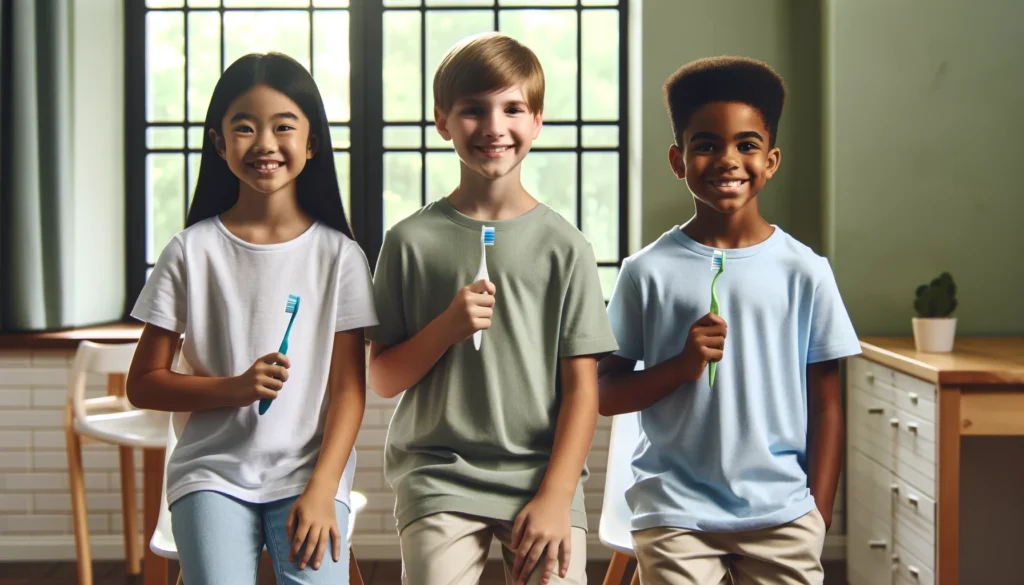Introduction
The Virginia Health Catalyst School-Based Teledentistry Playbook Chapter
Click the below icons to read more about each topic
The Playbook: School-Based Teledentistry Chapter
Virginia Health Catalyst shares its experience and expertise gained through multiple community-based learning collaboratives in the Playbook Chapter on School-Based Teledentistry.
Playbook Chapter Objectives:
Provide a replicable strategy for other states to adapt
Outline methods to improve patient service delivery/patient-centered care
Inform health policy updates and needs (coming in 2026)

School-Based Teledentistry Programs aim to increase access to oral health services, resulting in improved oral health for students, their families, and the community. The work also informs a strategy to help maximize the workforce and ensure the delivery of team-based, patient-centered care.
Catalyst staff will release the school-based teledentistry implementation toolkit in Spring 2026.
Intersection of Health and Education
Students’ health directly affects their learning ability, making schools an ideal place to implement integrated health programs, including oral health programs. Poor oral health can lead to pain, discomfort, and difficulty concentrating, all of which can hinder a student’s performance in the classroom. In addition to academic performance, poor oral health can contribute to absenteeism, poor engagement, and lowered self-esteem, affecting students’ overall academic performance and well-being. Conversely, students with good oral health are more likely to attend school regularly, participate actively, and achieve better grades.
Implementing health programs in schools creates convenience for both families and school systems by mitigating traditional loss of educational time and typical barriers faced with in-person clinic visits.
By teaching students the importance of oral hygiene and regular check-ups, school-based programs promote lifelong habits that extend beyond the classroom, promoting health well into adulthood. The intersection of health and education underscores the interconnectedness of physical and mental well-being with educational achievement. By incorporating oral health programs into schools, healthy mouths and bodies lay the foundation for thriving minds.
School-Based and School-Linked Oral Health Programs
School-based and school-linked oral health programs support equitable access and improved health outcomes by reducing barriers to receiving care, such as transportation and school scheduling conflicts. The Virginia Health Catalyst (Catalyst) School-Based Oral Health Program (SBOHP) provides education, support, and technical assistance. The Catalyst SBOHP model facilitates direct connections between school nurses and community health centers interested in starting or expanding school-based oral health programs. This model furthers essential work that enables a more equitable, person-centered, and value-based oral health care system.
In the 2018-2019 school year, over 30,000 Virginia children received oral health care. When schools closed during the COVID-19 pandemic, students could not access school-based care or receive other critical health-related resources. To address the tremendous need once dental programs opened, the Catalyst team convened the Virginia Department of Education (VDOE), the Virginia Department of Health (VDH), and the Delta Dental of Virginia Foundation (DDVAF) to discuss a pilot for an SBOHP. All parties agreed to design a program to meet the unmet needs of the school-age population.
With the system change approach in mind, Catalyst staff introduced school-based teledentistry to clinics and schools with active SBOHPs to increase access to care. The addition of teledentistry builds on the benefits of SBOHP, such as eliminating transportation barriers while improving continuity of care and increasing opportunities to build a trusting relationship between patient and provider.
This project is supported in part by the Health Resources and Services Administration (HRSA) of the U.S. Department of Health and Human Services as part of a Health Resources and Services Administration Oral Health Work Force Grant awarded to the Virginia Department of Health (Project Period 09/01/2022 – 08/31/2026). The contents are those of the author(s) and do not necessarily represent the official views of, nor an endorsement, by HRSA, HHS, or the U.S. Government.